RRR9: Estimating Group Size, Homelessness Crisis Pt.2, Ugliness of U.S. Presidential Debates, Atlantic Hurricane Season, Team USA Update, and the Maine Photo Dump Pt.2
🤥🛌🏻👨🏻💼🗣👨🏽💼⛈☔📸
Hey, everyone 👋🏼. Forgive me for my lack of manners this week, I have a lot on the mind 🧠🧐. Let’s get right into it!
Check out the following from YouGov:
When it comes to estimating the size of demographic groups, Americans rarely get it right. In two recent YouGov polls, we asked respondents to guess the percentage (ranging from 0% to 100%) of American adults who are members of 43 different groups, including racial and religious groups, as well as other less frequently studied groups, such as pet owners and those who are left-handed.
You can clearly see we often overestimate (in spectacular fashion, might I add) the size of small groups in the U.S.
The pattern flips almost perfectly when we get past the 50% line:
A first glance at this data, and one can ideate on several reasons this might be the case. YouGov tests a few theories and comes to the following conclusion…
Why is demographic math so difficult? One recent meta-study suggests that when people are asked to make an estimation they are uncertain about, such as the size of a population, they tend to rescale their perceptions in a rational manner. When a person’s lived experience suggests an extreme value — such as a small proportion of people who are Jewish or a large proportion of people who are Christian — they often assume, reasonably, that their experiences are biased. In response, they adjust their prior estimate of a group’s size accordingly by shifting it closer to what they perceive to be the mean group size (that is, 50%). This can facilitate misestimation in surveys, such as ours, which don’t require people to make tradeoffs by constraining the sum of group proportions within a certain category to 100%.
What does all this mean?
Does correcting misperceptions of group size change peoples’ attitudes on related issues? Current research suggests it does not. In a series of studies (one of which used a survey fielded by YouGov), political scientists John Sides and Jack Citrin attempted to correct inaccurate beliefs about the size of the U.S. foreign-born population, both subtly, by embedding the accurate information in a news story, and explicitly, by providing survey respondents with Census Bureau estimates. They found that while providing this information did somewhat improve people’s knowledge of the number of immigrants in America, they did not make people more supportive of immigration.
I’m not sure it would have been wise to assume that knowing the number of immigrants in America would change an individuals’ attitude on immigration 🤔. In any event…
Accurate information doesn’t always change minds 🤷🏻♂️🤷🏻♂️🤷🏻♂️.
Junto Club ♣️ Homelessness, Substance Abuse, and Violence Pt.2
We’re bumping Junto Club towards the top of the newsletter this week to bring you part two of the RRR “miniseries” on the homelessness crisis happening in many U.S. cities.
In RRR8, I used the Junto to discuss a little of what I experienced recently in the Kensington neighborhood of Philly, and a lot of what was on my mind in the aftermath. I listed out some high-level categories that need to be considered as part of a reasonable and humane solution.
I may have stumbled upon an opportunity to address my category of “have enough shelter beds at any given time to meet the needs of the homeless population, and make homeless shelters a safe place to be”.
According to the NLIHC:
An estimated 226,080 people experiencing homelessness were unsheltered in 2020, and more may be unseen and uncounted in estimates. People who were unsheltered represented 39% of the total homeless population and 51% of the single adult homeless population. Using an estimate of $16,000 per bed and adjusting for an undercount of unsheltered homelessness, the authors estimate that an expansion of shelter services to accommodate all unsheltered persons would cost an additional $4.5 billion annually.
Before I continue, do note there is a difference between sheltered and unsheltered homeless.
Now, let’s ponder the estimate of 4.5 billion for a moment. It’s not a negligible amount of money at all.
Oh, wait, look what I just found 😳:
The U.S. government wastes billions of taxpayer dollars every year.
Improper payments, which refer to payments that are made incorrectly by the government, cost the U.S. $247 billion in 2022, according to the Government Accountability Office. The U.S. government has lost almost $2.4 trillion in simple payment errors over the last two decades, by GAO estimates.
247 billion in improper payments 🥴🤯.
By the way… this is not some estimate based on cuckoo methodology. The government themselves are telling you they wasted 247 billion dollars.
If our GDP was simply the amount of money we wasted on improper payments in 2022, we would tie New Zealand to get into the top-50 countries ranked by GDP. How poetic is that?
Poetic alright… like Edgar Allen Poe cooked it up himself. The GAO wrote a lovely blog post if you’d like to dig into that any deeper.
If we remedied improper payments, we could shelter every homeless person in this country nearly 55X over. These are the kinds of horrific facts that should leave us all begging for more accountability from our government, regardless of your political leanings.
We live in the richest society in the history of the world, there is no reason the quality of life for many of our citizens has to be so poor.
All this to say, don’t let anyone tell you that money is the reason we can’t provide shelter to homeless people in America. Not only could we do that, but we could put major investment towards the rehabilitation and prosperity of these individuals as well.
The real reason for our floundering quality of life is that we can’t organize, nor govern ourselves as effectively as possible. Not even close 😥.
In Recent Times…
I took time last week to watch the Republican Primary Debate (😠🔊👉🏻👈🏻). While on one hand I deeply regret it, I am reminding myself that it’s as important to embrace the ugly nature of current political affairs in the U.S. as it is to celebrate the positive outcomes of our relatively strong democracy. Here are some takeaways:
The Good
U.S. politicians have been under scrutiny for quite some time now due to their habit of pandering to the audience; saying one thing one day, and seemingly days later changing their stance completely. Some more pandering took place last week in the debate, and I’m going to argue that we should be feeling good about it.
Why do politicians take stances that conflict against their own personal beliefs, or change their (overly confident and strongly stated) opinions so frequently? Usually, it’s because of how they are polling, or it’s related to the audience they’re addressing. But if you cut through that reasoning, the common denominator is that they are catering towards what the American people want to hear.
This pandering is proof that contrary to what many people think or say, citizens do still have a ton of power in our democracy. We should take that seriously, and stop treating politics like a sporting contest where we attach our identity to one of the teams involved. There are real consequences that we can control with not just our vote, but our ability to converse with others and sharpen good ideas.
The Bad
Many of the candidates on stage said they would support Trump even if he were found guilty in court of one or many of his alleged crimes. This is a pretty sobering look at just how bad things can get if we don’t tread lightly. Add on top of this that not only is the separation of church and state not something many of the candidates seem to value, some are overtly opposed to it. “God is real” - Vivek Ramaswamy.
I should state clearly for the record I am not against people believing in god 😂 (in case that needed to be said). I just don’t want it ruling our politics.
The Ugly
When will we put a stop to the current “debate” format? It feels as though at least 40% of the time, three people are talking in what can only be described as a crescendo of chaos. These three people are…
Person one, who was initially answering a question but goes well over their time limit.
Person two, who has now cut in to defend themselves after being viciously attacked or at least hit with serious allusion by person one
Person three, who is the moderator butting in to stop both person one and two from talking or shouting over one another, because somewhere, person four is waiting patiently (or not so patiently) to answer the question that should be coming to them next.
I frankly can’t take it anymore, nor can I take the thought of the American citizen who was told to “actively participate in their democracy” only to tune into that display of horrific humanity. I can sympathize with why many people choose to see themselves out of the political arena altogether.
Civil discourse can save us, but we need some brave and genuinely good actors to come in and give us the opportunity to travel down that path. It’s up to each of us to demand more from everyone in the political arena. Hear me out… acting like a lunatic might be a good enough reason to not vote for someone.
Readings of the Week
“Nonprofits Are Sapping the Progressive Project” by Noah Smith
I’m going back to the Noahpinion well for a post made back in late May. It stuck with me because at the time I originally came across it, it offered a unique perspective I had not heard about nor had I conceived myself.
Nonprofits are a part of the private sector. Having nonprofits do things like design infrastructure or administer welfare benefits instead of having government employees do these things is outsourcing government functions to the private sector. There is very little difference between paying the Kounkuey Design Initiative to create infrastructure and paying a for-profit consulting firm to do it, except that no one is officially making any profit on the former.
That difference, I suspect, is one reason why many progressives have embraced nonprofit spending. There is a tacit assumption — probably inherited from the socialist movement — that profit is wasteful. And it feels slimy for some fat-cat capitalist to be getting rich off of taxpayer dollars that were meant to help the public.
Meanwhile, conservatives probably held their noses and tolerated the growth of nonprofit outsourcing, because it shrank the size of the civil service. Ronald Reagan famously said “The nine most terrifying words in the English language are: I'm from the government, and I'm here to help.” That quote typified the long-standing conservative opposition to the existence of the bureaucracy. Nonprofits, in contrast, weren’t exactly private free enterprise, but they did include lots of charities, which conservatives have generally been favorable to as an alternative to government. And of course nonprofit workers were mostly non-unionized, while government workers were more likely to be unionized, so outsourcing to nonprofits helped to break the power of organized labor.
The rest of the post is very worth your time, and as such, I didn’t want to put any spoilers in here :-).
“Two Thoughts (20 - 26 August)” by Jim O’Shaughnessy
Just two thoughts… x7! There are always some real gems in the “two thoughts” distribution from Jim. My singular favorite thought in this edition is very on brand with some of what we’ve been discussing in here lately:
Order is never observed; it is disorder which attracts attention because it is awkward and intrusive.
- Eliphas Lévi
Atlantic Hurricane Season ⛈⛈
This, according to the National Hurricane Center and Central Pacific Hurricane (simply referred to as NHC):
The Atlantic hurricane season runs from June 1 to November 30. The Atlantic basin includes the Atlantic Ocean, Caribbean Sea, and Gulf of Mexico. Based on a 30-year climate period from 1991 to 2020, an average Atlantic hurricane season has 14 named storms, 7 hurricanes, and 3 major hurricanes (Category 3, 4, or 5 on the Saffir-Simpson Hurricane Wind Scale). The first named storm typically forms in mid to late June, the first hurricane tends to form in early to mid-August, and the first major hurricane forms in late August or early September.
And so, we find ourselves right in the wheelhouse of the 2023 season. Atlantic hurricane season has always baffled me, because it certainly feels like each year, the Caribbean islands and the southeastern part of the contiguous U.S. get absolutely smashed by multiple strong hurricanes, and are forced to rebuild and mourn losses.
I suppose, the area which I have described as being the most impacted by Atlantic Hurricane season is quite large, and to those people who have never lost a home or a loved one (or pet, or car, etc.), it might not feel so acute.
Anyways, enough of that ramble. Here’s where we stand today (image from NHC):
As you can see in the legend, we have hurricane Franklin (which happens to be the strongest storm thus far in the 2023 season) which has thankfully not caused much damage other than a lot of rain in Bermuda. Idalia which has now weakened into a tropical storm, did deal quite a blow in Florida.
Let’s keep our eye on that orange X. Low pressure system formation at this time of year off the west coast of the Cabo Verde Islands is always of concern. Cyclone formation within 7 days is currently pegged at 70% by the NHC.
Stay safe down there, everybody!
A Quick Team USA Checkup
Team USA is cruising along so far in Manila. The team is off to a 3-0 start after a convincing win against Jordan. Knockout play is set to begin tomorrow, and the U.S. will lace them up against Montenegro on Friday.
The story of the group stage thus far, however, might be standout performer and former NBA player Rondae Hollis-Jefferson, who came into the game against the U.S. ranking second in the world cup in points per game.
It goes to show that the players who earn consistent playing time in the NBA are absolute monsters. Someone as talented as Hollis-Jefferson had to go overseas to secure a larger role on a team, though I suspect he might get a crack at coming back into the league soon if he wants it.
Maine Photo Dump
In RRR3, I spoke the beauty of Maine. I vowed I would return. Well, here I am!
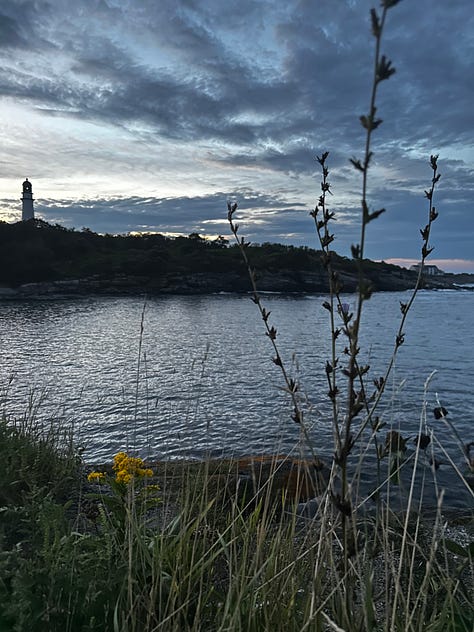





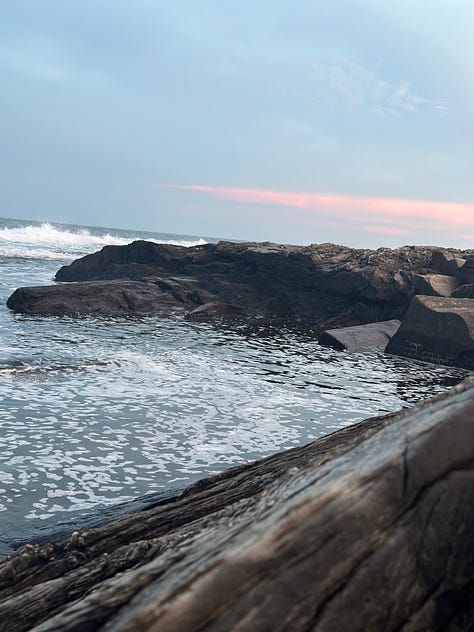
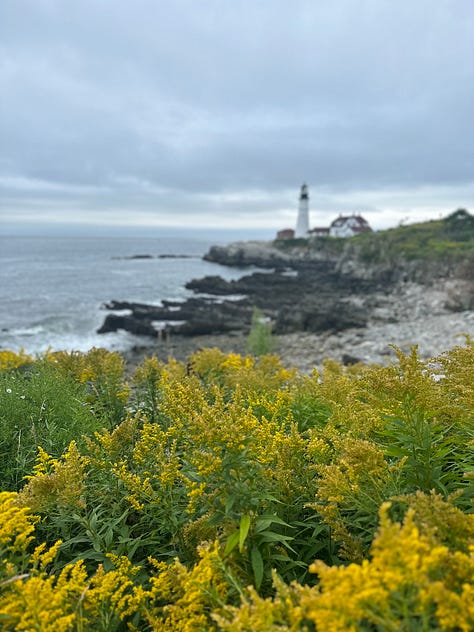
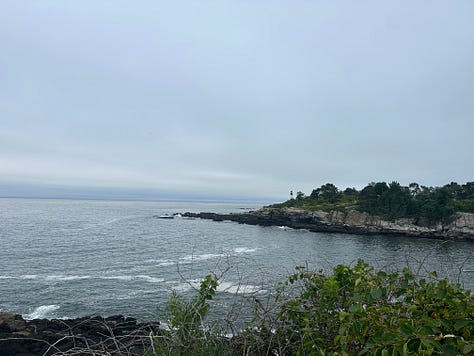
There is no shortage of scenic coastline to explore here:
I should mention as well that Portland itself has a lovely and vibrant downtown area, as well as quaint surrounding neighborhoods. It’s truly a magical place 🧙🏼♂️.
I’ll be circling back in the next few weeks with a few more photo dumps. I’m extremely lucky to be doing some traveling around New England to end the summer. I’m here in Portland until this weekend. After a short stay back at home base, I’ll be in Rhode Island for a week, and then headed even further north than Portland, all the way to Acadia National Park for a close friends’ wedding. I’ll try hard to capture some more good shots of summer kissing us goodbye 😢.
Until then, my friends, have a wonderful end to your summer. There’s nothing more important in life than enjoying it! Thank you for reading!


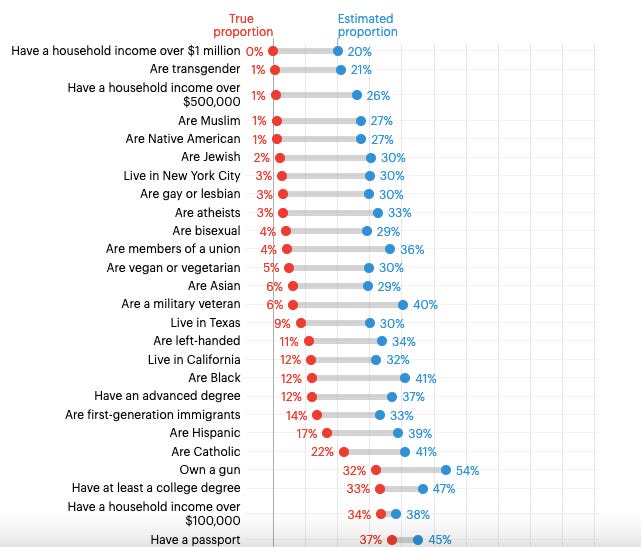
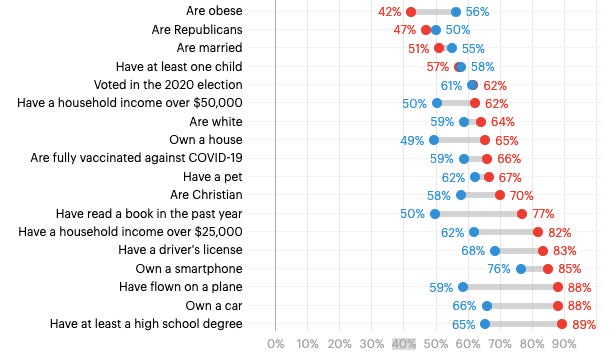
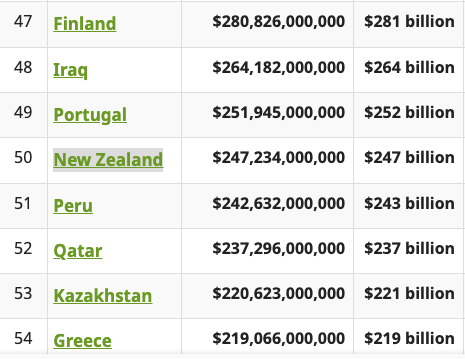
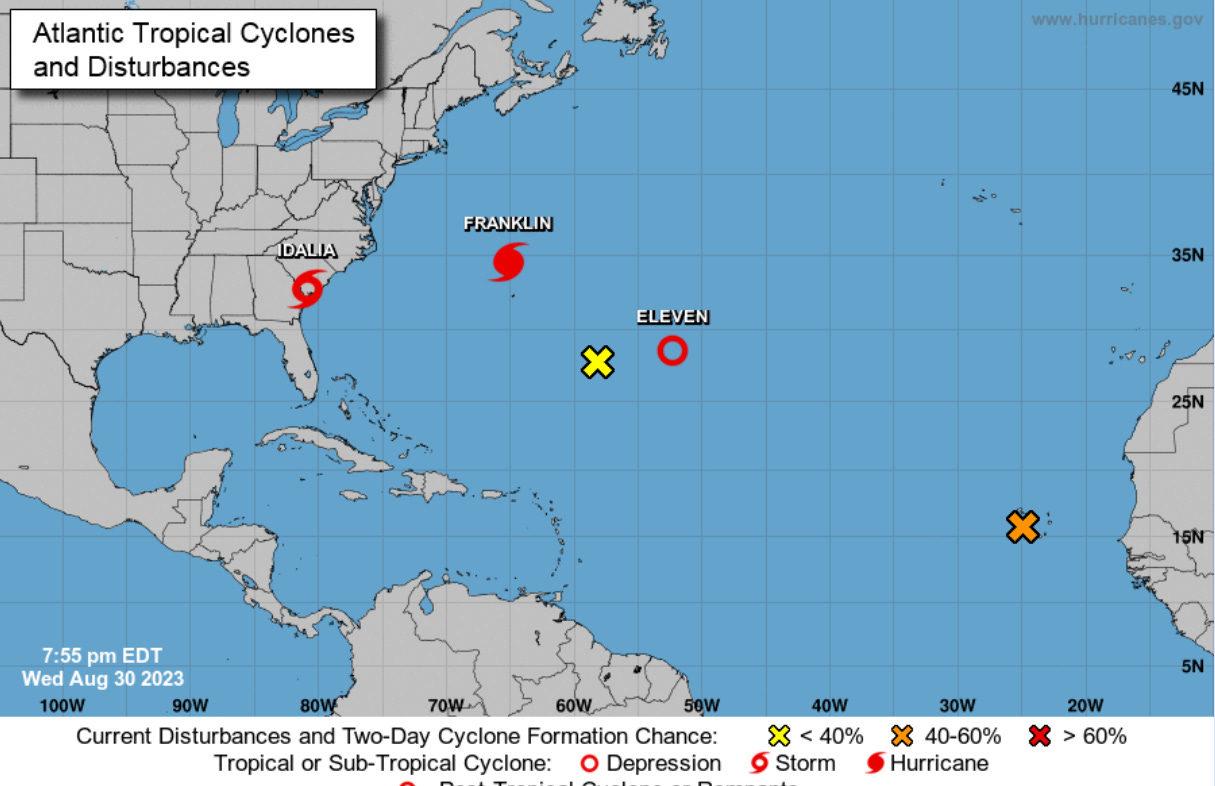
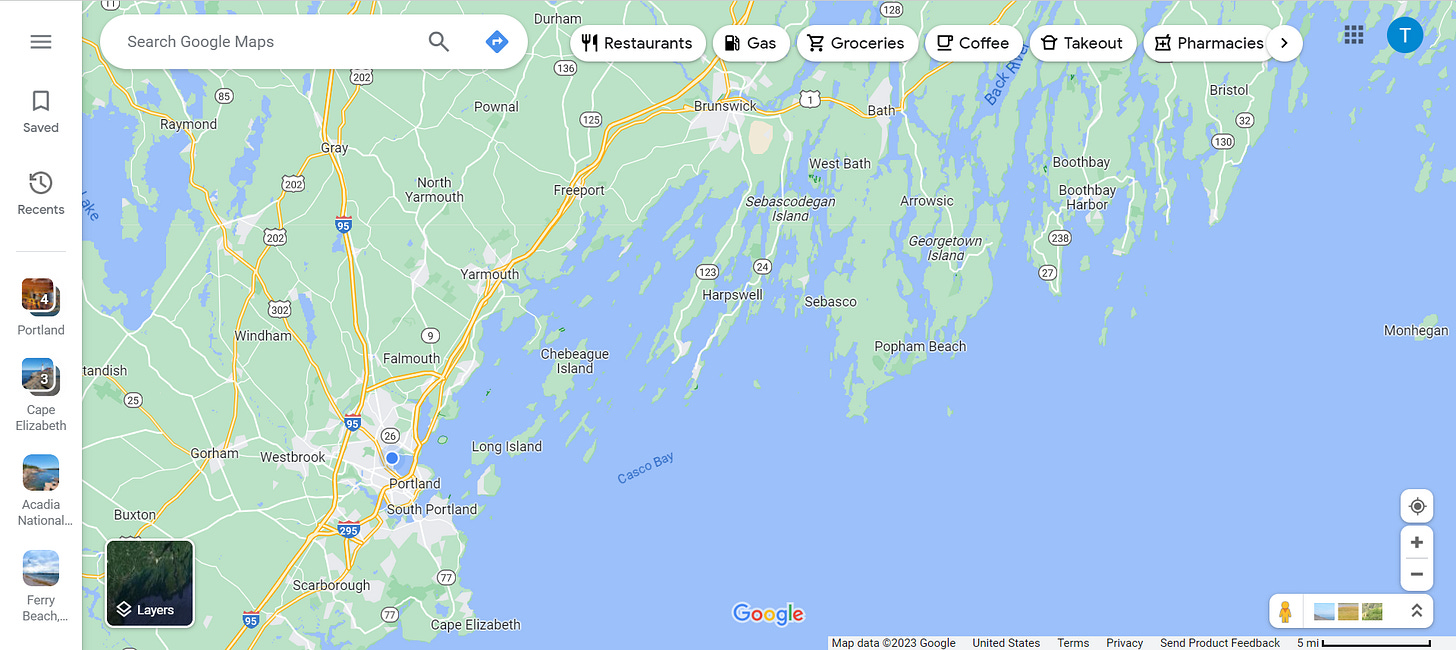
Can you please take over this country?! Great read.